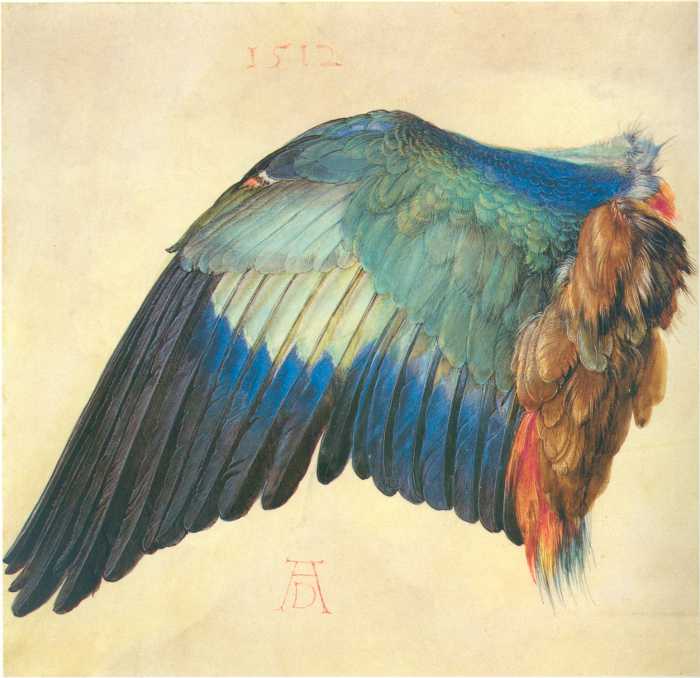FWP:
For background see S. R. Faruqi's choices. For more on Ghalib's unpublished verses, see the discussion in {4,8x}.
The phrase yak-ba;xt conveys completeness and universality, while the overtones of ba;xt of course suggest fate and destiny, especially an auspicious one. For more on such yak expressions, see {11,1}. To be on a 'height' also suggests the astrological idea that one's 'star is in the ascendant'; for another such usage, see {169,4}. Asad's 'offering' is the loftiest possible one, the one that rises to the greatest height; appropriately enough, it consists of his 'lightness' or carefreeness.
By contrast to such 'lightness', the shadow of the Huma's wing falling on one's head would be a heavy, undesirable burden. There are two kinds of pleasure here. The first is the depiction of the extreme lightness of Asad's carefreeness, such that by comparison even the shadow of a bird's wing would be a heavy weight. Thus the enjoyable wordplay of vabaal and baal becomes a form of meaning-play as well.
The second pleasure is the well-established fact that the man (it seems always to be a man) on whose head the shadow of the Huma's wing falls, is destined to become a king. And a king wears a heavy crown, he is burdened by affairs of state, he cannot feel 'lightness' or 'carefreeness'. But one of his perquisites is the receiving of 'offerings' and tribute from his subjects. So Asad's 'offering' of lightness or carefreeness might indeed be a lofty and acceptable one, since it's a gift of something that the king himself doesn't have.
Compare {174,3}, which similarly deprecates the Cup of Jamshid and praises a clay cup from the bazaar.

Asi:
We know that if the Huma would cast its shadow on the head, then great ascendancy and supremacy is bestowed; but there's also the fact that before that event there is carefreeness. Thus in our opinion one ought to sacrifice entire ascendancy or supremacy for the sake of this carefreeness. The shadow of the Huma's wing is a burden; don't scheme to have it on your head to weigh your head down. [As Ma'ruf Dihlavi says:]
dard-e sar me;N hai kise .sandal lagaane kaa dimaa;G
us kaa ghisnaa aur lagaanaa dard-e sar yih bhii to hai
[with a headache, who has a mind to apply sandal-wood paste?
the rubbing and applying of it-- even/also this is a headache!]
== Asi, p. 148
[Asi gives the verse without attribution, and with a slightly different first line.]